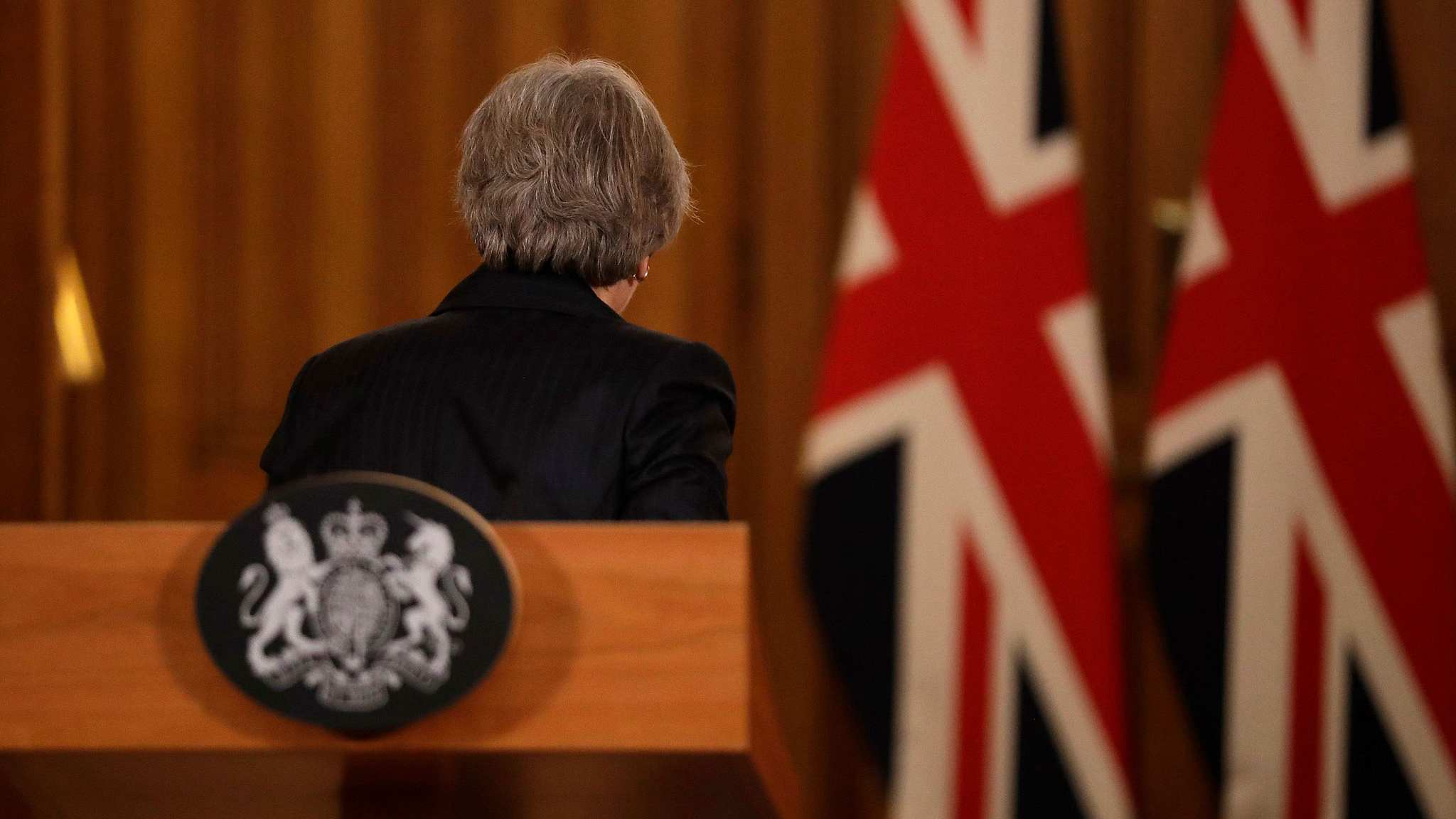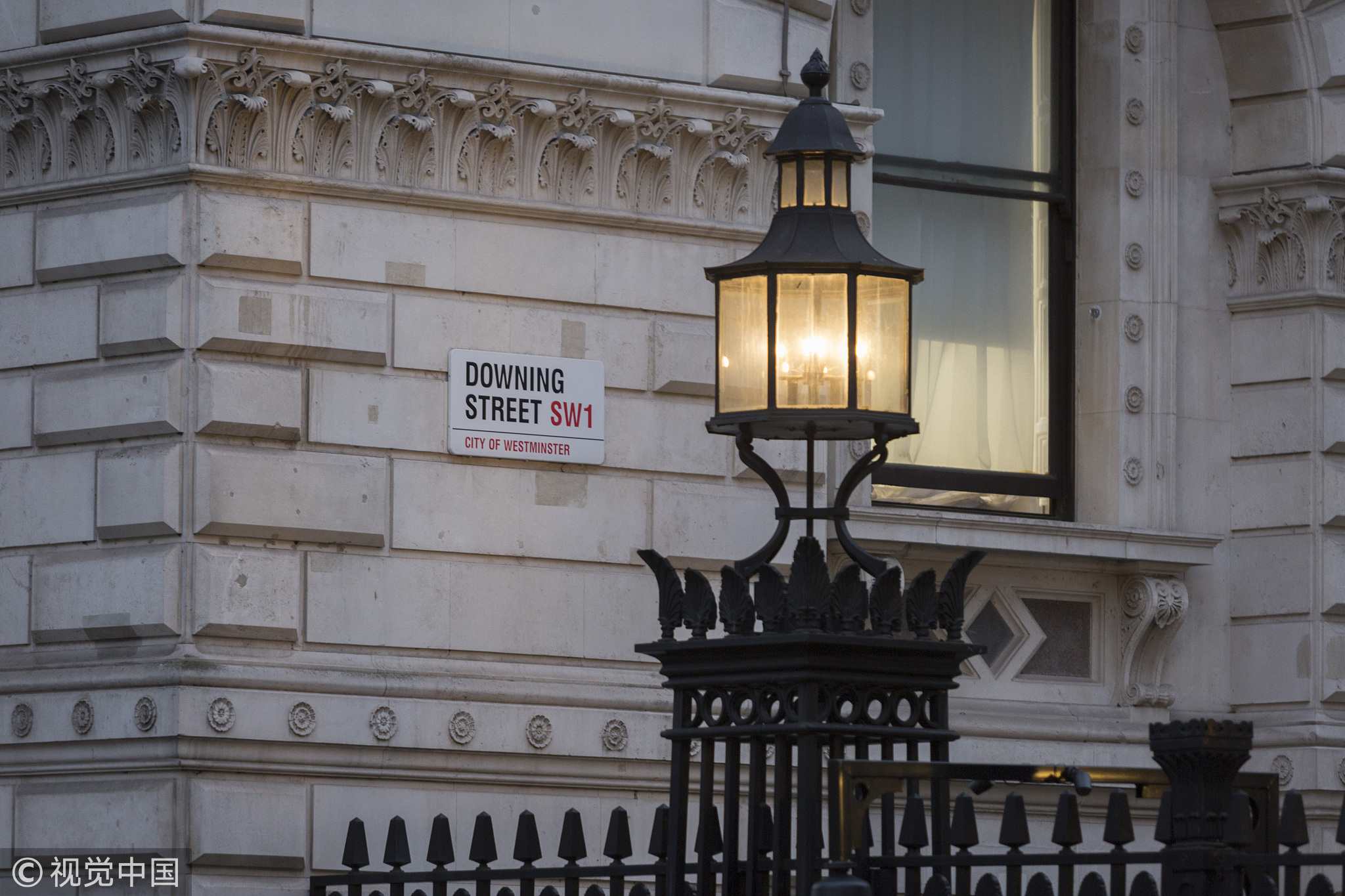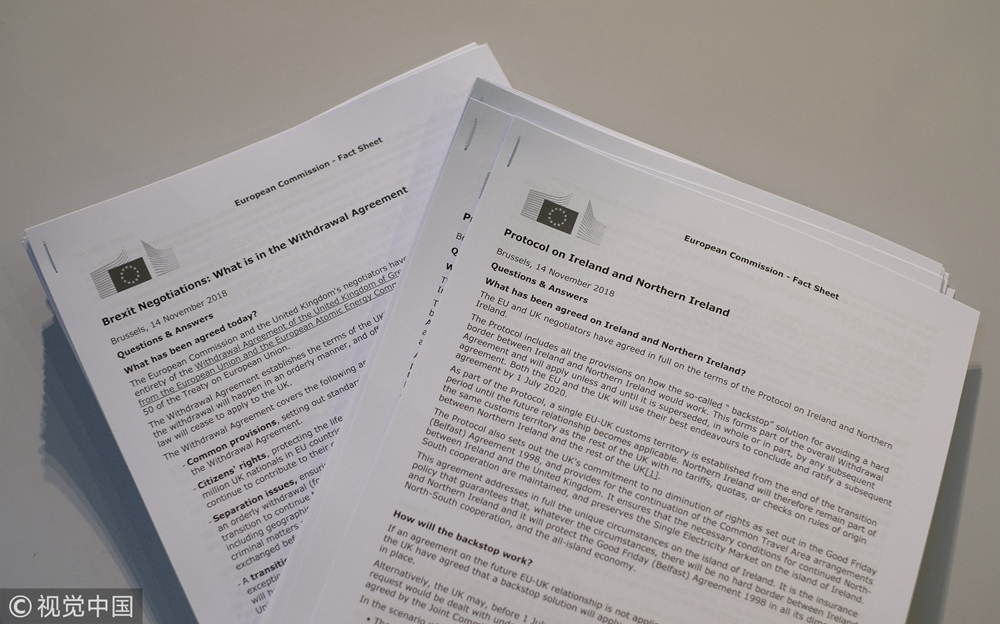
Politics
14:33, 16-Nov-2018
Uncertainties mount as Brexit deal triggers disputes in UK
Updated
13:55, 19-Nov-2018
By John Goodrich

The fate of the British prime minister, her government and Brexit lay in the balance on Friday after a dramatic day in Westminster.
Two senior Cabinet ministers resigned and several junior ministers followed them out the government following the publication of the 585-page Brexit document Theresa May negotiated with the European Union (EU).
What will happen next? No one can say with any confidence.
More resignations are expected, with the influential environment secretary Michael Gove, the transport secretary Chris Grayling and the international development secretary Penny Mordaunt closely watched.

As Prime Minister Theresa May negotiates Brexit issues and members of her own Conservative government continue to resign in response to her presentation of the current terms, the light on Downing Street's reinforced security railings shines onto the walls of Whitehall, on November 15, 2018, in London. /VCG Photo
As Prime Minister Theresa May negotiates Brexit issues and members of her own Conservative government continue to resign in response to her presentation of the current terms, the light on Downing Street's reinforced security railings shines onto the walls of Whitehall, on November 15, 2018, in London. /VCG Photo
Offered the job of Brexit secretary yesterday, Gove reportedly said he would accept only if he could renegotiate May's deal — a proposal she rejected.
Other Cabinet members are thought to be lobbying for changes to the agreement.
A backbench maneuver to remove May from Downing Street is underway but, as has been the case throughout her premiership, a lack of viable replacements is likely to keep her in post for now.
48 of May's Conservative MPs must formally submit letter of no confidence for a challenge to be triggered.

A draft copy of the UK's withdrawal agreement from the European Union given to media in the Berlaymont, the EU Commission headquarter, in Brussels, Belgium, November 15, 2018. /VCG Photo
A draft copy of the UK's withdrawal agreement from the European Union given to media in the Berlaymont, the EU Commission headquarter, in Brussels, Belgium, November 15, 2018. /VCG Photo
The number of requests is rumored to have stood at close to that threshold for several months, and on Thursday powerful backbenchers including Jacob Rees-Mogg for the first time publicly confirmed that they had submitted requests.
A coronation around a figure who could hold the party and government together, potentially Gove, would be the only way to avoid a contest that could take months.
The Brexit deal that May negotiated with the European Union has been comprehensively rejected by the hardline wing of her Conservative Party, her allies in Northern Ireland the DUP, and all but a handful of opposition MPs are opposed.
Putting the agreement to a parliamentary vote next week, as originally planned, looks like a losing option at this stage.
The deal requires 320 votes to pass, and the BBC believes only around 250 Conservative MPs are guaranteed to back it.
May, who has battled on despite repeated setbacks over the past two years, seems determined to persevere with a Brexit deal she insists is ‘the right one for our country and all our people.'
She will take questions from listeners on a radio station LBC on Friday morning, and try to sell the agreement.
“If we do not move forward with that agreement, nobody can know for sure the consequences that will follow. It would be to take a path of deep and grave uncertainty when the British people just want us to get on with it,” she warned on Thursday.
But with the prime minister's party in revolt and her Brexit deal unloved, no one can predict with any confidence what lies ahead for May, her government or Brexit — only that another dramatic day in British politics is in store.

SITEMAP
Copyright © 2018 CGTN. Beijing ICP prepared NO.16065310-3
Copyright © 2018 CGTN. Beijing ICP prepared NO.16065310-3